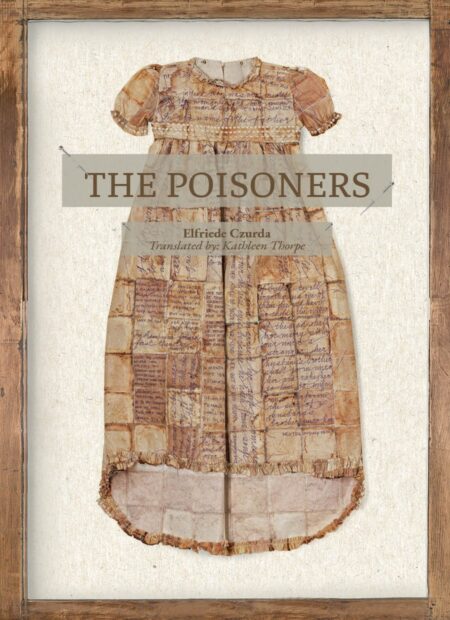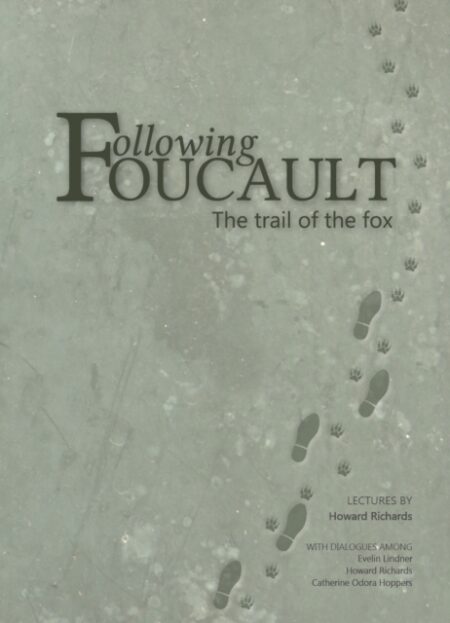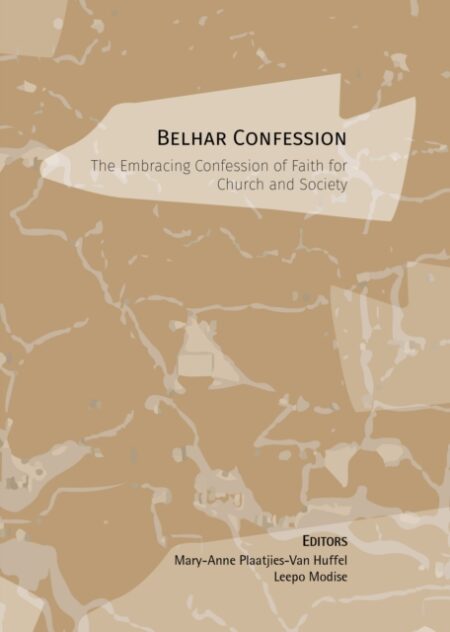-

The Poisoners
0R230,00Else poisoned her husband as a token of her love for Erika. Alone in her prison cell Else relives who and what had brought her there E Erika and their secret language, ErikaOs enabling mother, ElseOs jealous mother-in-law, her abusive husband and his appalling secret, the words of oppression.
OElsechickgorgeousyou you are like a blank white sheet of paper on which I am the Word. You are like the nothingness that I first efface because I have Words to put into the emptiness. Because I am the Word so-to-say.O
Print: View Print Version
-

The Prince Edward Islands
0R315,00This book provides a modern, synthetic overview of what is known about the structure, functioning and interactions of marine and terrestrial systems at the Prince Edward Islands. Building on more than 50 years of biological, geological, meteorological, and oceanographic research, it demonstrates not only how inextricably linked marine and terrestrial systems at the islands are, but also how global environmental challenges, such as climate change, biological invasions, and over exploitation, are playing out at the regional and local levels in the Southern Ocean.
-

The Quest for Identity in so-called Mainline Churches in South Africa
0R225,00This volume of essays forms part of a series on the interface between ecumenical theology and social ethics in the (South) African context. This contribution is the result of a public conference hosted at the University of the Western Cape in May 2013 under the same title. It explores the quest for identity in so-called mainline churches in South Africa, given the history of the establishment of various denominations of mainly European origin in Southern Africa, ecumenical efforts to find common ground between such churches and breakaway movements among independent and Pentecostal churches where this search for identity is evidently found wanting.
-

The Relevance of Critical Citizenship Education in an African Context
0R260,00Critical citizenship is a multi-faceted, contemporary social, political and educational issue being discussed from a wide range of disciplines and points of view. Unusually, this collection brings together scholars in the fields of theology, art and design to ponder various levels and forms of education, including early childhood interventions, the rehabilitation of young offenders, and the impact of homosexuality in Malawi on citizenship and the links with theological teachings. The common ground that brought participants together was a mutual, collaborative search for the relevance for the African context of the notion of citizenship education, be it OcriticalO, OdemocraticO, OresponsibleO, OactiveO or preferably all of these forms or aspects of citizenship brought together.
-

The Road to Justice: The Bible and the law as cornerstones of civilisation and culture
0R240,00The relationship between art, Christian culture and the law often receives attention. It is trite that law influences all human lives as well as culture and art. The law, however, does not only provide a context within which art and culture can develop, but it is also the cornerstone of civilisation and culture. On the other hand, we must contemplate whether civilisation and culture are necessary conditions for a legal system. This book consists of a compilation of essays narrating the influence of principles from the Bible on which the Christian belief is premised and practised by Christians worldwide on law and on culture. Consideration is given to the foundation of the law on different and well-known Biblical texts. The interplay between Christian principles vis–vis the law and culture is considered and unpacked in this research. In addition, copies of well-known art depicting scenes from the Bible enhance each chapter. The main author, the late Prof. Eltjo Schrage, passed away shortly before the book was published with the assistance of Prof. Jan Adriaan van der Walt, Dr Glynis van der Walt and Dr Hashali Hamukuaya.
-

The Scholarship of Teaching and Learning in Higher Education
0R265,00This book makes a significant contribution to the literature on the Scholarship of Teaching and Learning (SoTL). It provides both theoretical and practical insights that should be of interest to many SoTL scholars and practitioners worldwide. The theme of teaching and learning, and SoTL, as fundamentally communicative acts, connects the entire volume and will be picked up by SoTL scholars elsewhere as a useful and critical frame for future scholarship. The cases from South Africa and Sweden offer new perspectives on teaching, learning, and SoTL.
eBook: View eBook Version
-

The Scholarship of Teaching and Learning in Higher Education
0R0,00This book makes a significant contribution to the literature on the Scholarship of Teaching and Learning (SoTL). It provides both theoretical and practical insights that should be of interest to many SoTL scholars and practitioners worldwide. The theme of teaching and learning, and SoTL, as fundamentally communicative acts, connects the entire volume and will be picked up by SoTL scholars elsewhere as a useful and critical frame for future scholarship. The cases from South Africa and Sweden offer new perspectives on teaching, learning, and SoTL.
Print: View Print Version
-

The Semiotics of New Spaces
0R300,00In South Africa, the township or sub-economic state housing development has achieved a very significant position as a site for sociolinguistic research. The Semiotics of New Spaces ? Languaging and Literacy Practices in one South African Township looks at the ways in which people are responding, through their semiotic practices, to the intense socio-historical changes taking place in post?apartheid South Africa. The study is set against the backdrop of Wesbank ? one of the first racially mixed housing developments in the Western Cape. The result is a range of related topics, such as how cross-cultural and crosslinguistic families influence the language practices of their younger members; the impact of translingual friendships on language practices and attitudes; the ways in which older people use their existing literacies to negotiate the multilingual realities of the township and aspects such as identity, voice and agency as markers of a developing
participatory citizenship.eBook: View eBook Version
-

The Semiotics of New Spaces
0R0,00In South Africa, the township or sub-economic state housing development has achieved a very significant position as a site for sociolinguistic research. The Semiotics of New Spaces – Languaging and Literacy Practices in one South African Township looks at the ways in which people are responding, through their semiotic practices, to the intense socio-historical changes taking place in post’apartheid South Africa. The study is set against the backdrop of Wesbank – one of the first racially mixed housing developments in the Western Cape. The result is a range of related topics, such as how cross-cultural and cross-linguistic families influence the language practices of their younger members; the impact of translingual friendships on language practices and attitudes; the ways in which older people use their existing literacies to negotiate the multilingual realities of the township and aspects such as identity, voice and agency as markers of a developing participatory citizenship.
Print: View Print Version
-

The Tenderness of Conscience
0R340,00With this book, theologian and political observer Allan Boesak once again displays the strengths of his writings that were evident in the seventies and eighties: bringing Christian theology to bear on the political and socio-economic realities of our world.
OA serious and open-hearted commentary on the African Renaissance and the spirituality of politics, but with the clarity of the deeply embedded Christian message.O
Danny Titus
-

Theories of Social and Economic Justice
0R340,00EThe bulk of the contributions in this publication originated in a research project initiated by the Stellenbosch Institute for Advanced Study (STIAS) in 2002.
The book is based on the idea that the attainment of greater social and economic justice, specifically in the South African context, is strongly influenced by the implications and the coherence of various theories of social and economic justice.
-

There is no Supreme Constitution
0R330,00None of the articles of faith of the South African Constitution is plausible. The Constitution is not supreme and entrenched. Subject to potent socio-political forces it changes continuously and often profoundly regardless of stringent amendment requirements. The trite threefold separation of powers is more metaphorical than real and therefore unable to secure effective checks and balances. Though institutionally separated with their own personnel and functions, the three powers are ordinarily integrated in a single dominant political leadership, committed to achieving the same ideological goals. The bill of individual rights cannot guarantee justice, because rights are subject to the ideologically-driven exercise of judicial interpretation, often with damaging consequences for those relying on the bill of rights. This situation does not only apply to South Africa, but to all Constitutions premised on the same articles of faith, in this book described as the doctrine of statist-individualist constitutionalism. An improved mode of constitutionalism is called for – one which is equipped with a sounder system of checks and balances and better endowed towards the achievement of justice through a balanced constitution.
Print: View Print Version


